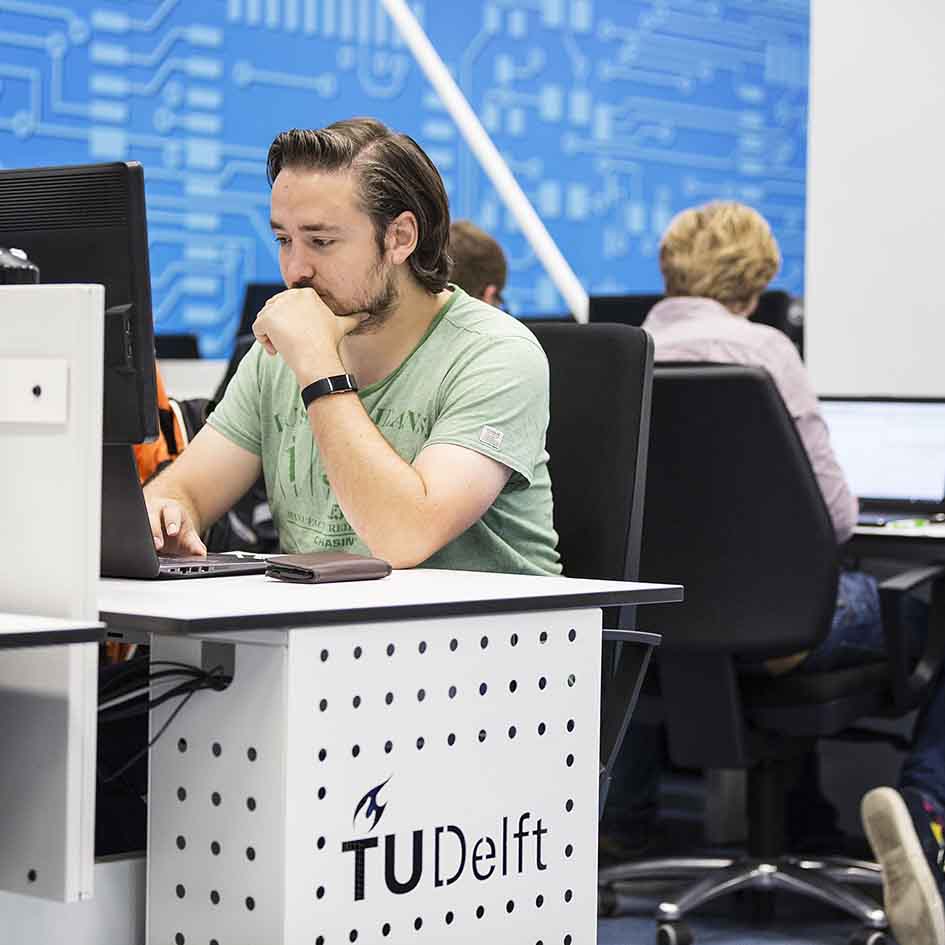Top American academic from Caltech in Delft
 On 16 May, the world-famous biochemical engineer Frances Arnold will be the key lecturer of the annually organised Van ‘t Hoff Lecture. Her public lecture will be about the innovative work for which she won the Millennium Technology Prize last year: making enzymes with directed evolution. The lecture (in English) will take place in the main auditorium of the Aula Building and starts at 19:00. Admission is free.
On 16 May, the world-famous biochemical engineer Frances Arnold will be the key lecturer of the annually organised Van ‘t Hoff Lecture. Her public lecture will be about the innovative work for which she won the Millennium Technology Prize last year: making enzymes with directed evolution. The lecture (in English) will take place in the main auditorium of the Aula Building and starts at 19:00. Admission is free.
Frances Arnold is in Delft at the invitation of professors Andrzej Stankiewicz (3mE) of the TU Delft Process Technology Institute and Isabel Arends (AS) of the TU Delft Bioengineering Institute. As a colleague of Arnold, Prof. Arends will give an introduction to the Van ’t Hoff Lecture lecture.
Date: Tuesday 16 May 2017 – 19:00 to 20:00
Location: Main Auditorium of the Aula Building, TU Delft, Mekelweg 5, Delft
Admission: free, registration is not necessary
The Van ’t Hoff Lecture is organised annually by the DPTI, which is celebrating its fifth anniversary in 2017.
Frances H. Arnold (born 1956) is the founder of directed evolution: a way to make and improve molecules such as enzymes with micro-organisms. The improved enzymes are then used to produce chemicals, fuels and medicine in a clean, sustainable way. Arnold will use her lecture to explain the how and the why of her method, which she introduced in the 1990s and which is currently being applied in laboratories around the world.
Arnold is professor of Chemical Engineering, Bioengineering and Biochemistry at the California Institute of Technology (Caltech). She studied Mechanical and Aerospace Engineering at Princeton University (1979) and obtained a doctorate in Chemical Engineering at University of California, Berkeley (1985). In 1992, she became a professor at Caltech, where she set up her extremely successful laboratory. In 2005, she was one of the founders of Gevo, a company that makes fuels and chemicals from renewable raw materials. Since 2013, she has been director of the Caltech Rosen Bioengineering Center.
The Millennium Technology Prize is one of the most prestigious technology awards in the world and consists of a cash prize of one million euros. The Finnish Technology Academy awards the prize once every two years to technological innovations that sustainably improve the quality of life.
Save




Comments are closed.